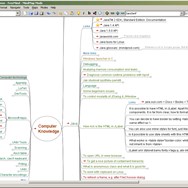Docear vs FreeMind
Compare features, pricing, and capabilities to find which solution is best for your needs.

Docear
Docear is a free academic literature management suite designed to help researchers organize their studies. It uniquely integrates reference management, mind mapping, and PDF handling, providing a unified environment for exploring, analyzing, and writing about academic literature. Its portable nature makes it ideal for use across different machines. by Joeran Beel, Stefan Langer, Marcel Genzmehr, and others...

FreeMind
FreeMind is a robust, open-source, and free mind mapping software written in Java. It's a versatile tool for brainstorming, organizing thoughts, managing projects, and structuring knowledge hierarchically, providing a flexible canvas for visual thinking.
Comparison Summary
Docear and FreeMind are both powerful solutions in their space. Docear offers docear is a free academic literature management suite designed to help researchers organize their studies. it uniquely integrates reference management, mind mapping, and pdf handling, providing a unified environment for exploring, analyzing, and writing about academic literature. its portable nature makes it ideal for use across different machines., while FreeMind provides freemind is a robust, open-source, and free mind mapping software written in java. it's a versatile tool for brainstorming, organizing thoughts, managing projects, and structuring knowledge hierarchically, providing a flexible canvas for visual thinking.. Compare their features and pricing to find the best match for your needs.
Pros & Cons Comparison

Docear
Analysis & Comparison
Advantages
Limitations

FreeMind
Analysis & Comparison
Advantages
Limitations
Compare with Others
Explore more comparisons and alternatives
















